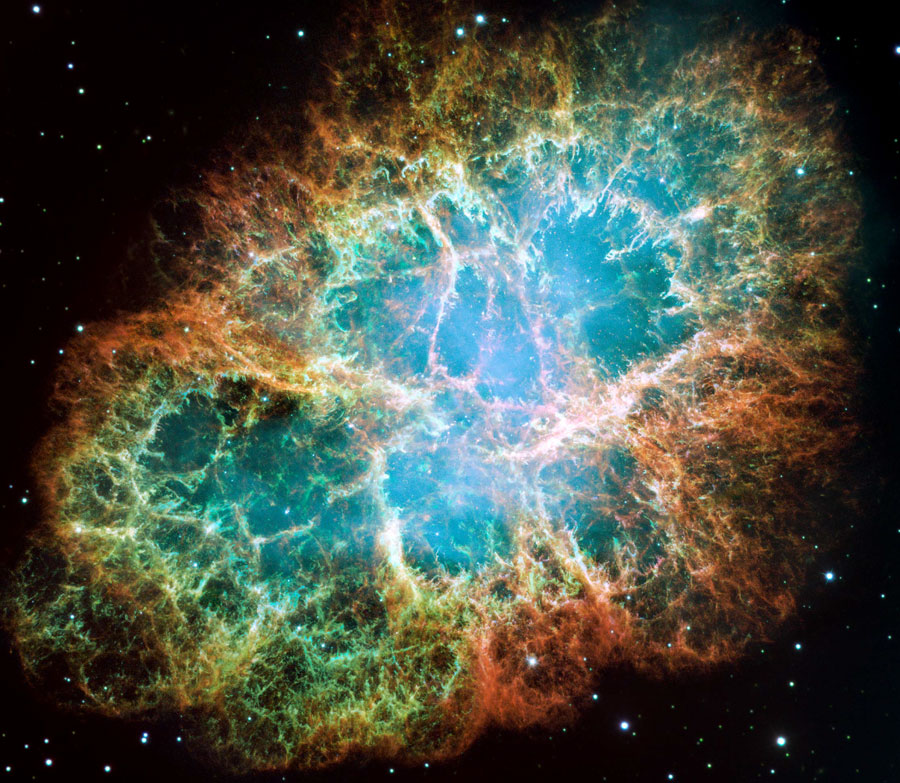http://apod.nasa.gov/apod/ap111225.html
M1: The Crab Nebula from Hubble
Image Credit:
NASA,
ESA,
J. Hester, A. Loll (ASU);
Acknowledgement:
Davide De Martin (Skyfactory)
Explanation:
This is the mess that is left when a star explodes.
The
Crab Nebula, the result of a
supernova seen in
1054 AD, is filled with
mysterious filaments.
The
filaments are not only
tremendously complex, but appear to have
less mass than expelled in the original supernova and a
higher speed than expected from a free explosion.
The
above image,
taken by the
Hubble Space Telescope,
is presented in three colors chosen for scientific interest.
The
Crab Nebula spans about 10
light-years.
In
the nebula's very center lies a
pulsar: a
neutron star as massive as the
Sun
but with only the size of a
small town.
The
Crab Pulsar rotates about 30 times each second.
Best Short Astronomy Videos:
APOD editor to speak in New York City on Friday, January 6
Tomorrow's picture: saturn storm
About The Split Between Western [Roman] & Eastern ['Greek'] Catholicism
Which Occurred in 1054
http://en.wikipedia.org/wiki/East%E2%80%93West_Schism



















No comments:
Post a Comment